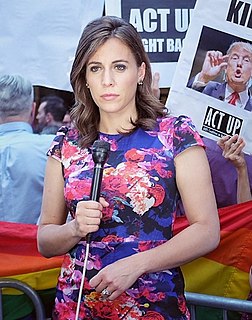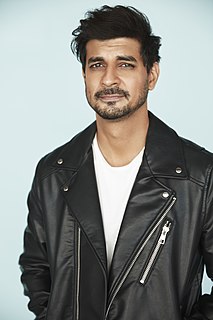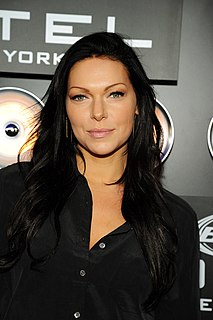A Quote by Hallie Jackson
Television is an intimately personal medium, especially with so many people watching on their phones or laptops. Style pressure comes with the territory.
Related Quotes
I did a good bit of episodic television directing, but directing a movie is so much more complicated. And there's so much more responsibility because the medium is very much a director's medium. Television is much more of a producer's writer's medium so a lot of the time when you're directing a television show they have a color palette on set or a visual style and dynamic that's already been predetermined and you just kind of have to follow the rules.
There is a difference. You watch television, you don't witness it. But, while watching television, if you start witnessing yourself watching television, then there are two processes going on: you are watching television, and something within you is witnessing the process of watching television. Witnessing is deeper, far deeper. It is not equivalent to watching. Watching is superficial. So remember that meditation is witnessing.
I think television has become such an interesting place for characters and for incredible storytelling. Half of what I watch are television shows that I've become obsessed with. I just think that it's opened up so much, to be such an interesting and creative medium, and so many wonderful directors and actors are moving to television because it is a great medium for telling stories and for creating a character over a long period of time.
I do think this is where television is going, and I think that it's awesome to be a part of a show like this because we are these pioneers into this new medium. And it's working. When you look at the success of House of Cards and Arrested Development, which I love, this is how people are watching television now. It's pretty cool to be a part of this whole thing.
I love the good old book with glue and binding, I really do, but that is just one way of experiencing text, and suddenly we have so many new ways, including our laptops, our phones, our watches. People in my generation agonize over this. People much younger than me don't agonize at all. They just go ahead and find ways to transform publishing.
































